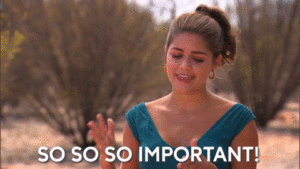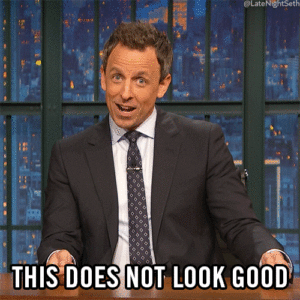Wikipedia is the world’s most famous online encyclopedia. Undoubtedly, you’re familiar with it on a personal level, but how often do you engage with it professionally? While it isn’t the most straightforward element to include in your marketing strategies, it is an important one. In this post, we’ll take a look at why leaving it out is detrimental to your bottom line.
Table of Contents
How Wikipedia Affects Market Value

The Wikipedia of today is not the Wikipedia of twenty years ago. Today’s Wikipedia is referenced and trusted by people, organizations, and institutions around the world.
- Wikipedia appears in Google’s featured snippets 10 times more than any other website
- It’s the second most visited website in the U.S. and in the world with over 1 billion monthly visits
- Almost always a top 3 search result on Google for any keyword, person, or place
- Used by both Siri and Alexa to populate answers to voice searches
- Many Google knowledge panel descriptions come straight from the topic’s Wikipedia page
- In 2022, Google became the first organization to pay to repurpose Wikipedia content, deeming the service valuable enough to invest in
- Wikipedia external links generate $7-13 million worth of monthly traffic to other websites
In other words, Wikipedia content is highly visible. It is just as likely to influence your ideal customer as an ad, news article, or blog post. Up to 90% of business leads will research options online prior to purchasing. Will those buyers find your brand represented the same way across Google, Wikipedia, and social profiles? Or is there a mismatch? If you don’t already know the answer, it’s time to find out.
Are You Losing 22% of Your Leads?

A Moz research study indicated that one negative search result can cost brands around 22% of their potential customers. Three negative results raise that to 59.2%. Four or more? Brands can expect to lose 70% of potential customers.
This mainly applies to first page search results since around 75%-90% of people never click through to second (or third) page results. When it comes to that all important first page, you could be looking at multiple results coming from your Wikipedia page. This includes:
- The knowledge panel
- Organic results
- Answers to People also ask questions
- Featured snippets
That’s four chances that someone is going to visit your Wikipedia page and use it to make a judgment about your brand. If there’s negative content on your page, you just lost potential customers.
The Cost of Not Taking Regular Action
So, now that you know that your Wikipedia page has the potential to influence billions of people a month, you also know that you don’t want negative content on the page. So, you read over the page once, give it your stamp of approval, and then dust your hands of it. Right?
Wrong.
Wikipedia pages are not static. They can be edited at any time by anyone. These editors may or may not share your views. They will have their own biases, experiences, and plans for the page. You can’t count on them interpreting recent events and determining what is or isn’t important in the exact same way that you would. If you don’t regularly review your page, you are placing your brand solely in their hands.
At any point, the page could:
- Have a significant amount of content removed
- Have one or more controversies added
- Have misinformation added
- Be visited and edited regularly by a Wiki troll (someone purposefully editing a page with inaccurate and/or outlandish content)
While Wikipedia has guidelines to protect pages, someone has to spot a problem and report it. If you aren’t watching your page, are you willing to trust that task to an unknown editor?

If ignoring a page is costly, it follows that regularly reviewing and editing the page is the way to go. In a way, yes, but there are pitfalls down this path as well. Here are a few missteps that can cost you:
- Editing the page yourself: To avoid Conflict of Interest and keep pages neutral, Wikipedia’s guidelines suggest that anyone personally affiliated with a brand refrain from editing the page themselves. Wikipedia editors are highly skilled at identifying COI edits and will take steps to revert changes and possibly ban COI accounts.
- Hiring a freelance editor: Working with someone who isn’t a Wikipedia expert can cost you more time and money than you want. Editors need to be familiar with your page and its history, need to know how to interact with other editors, need to be familiar with editing Wikipedia pages, must be able to find reputable and third-party sourcing to support any edits, and must write content that is factual and neutral, and not argumentative, promotional, or opinionated. If the editor you hire can’t perform these tasks, you could be looking at hiring a second or even third editor to clean up the mess of the first one.
- Not having an action plan in place when content needs to be edited immediately: At any time, your Wikipedia page could be edited in such a way that it becomes a marketing or PR emergency. If you don’t have a plan in place to address this, your online reputation could take a serious hit. At the very least, someone in your company should have “Wikipedia monitoring” in their job description. Everyone should know who that person is in case they need to report a problem.
- Not having a plan to address general page maintenance: A page that isn’t updated is a page that is out-of-date. Even if there’s nothing negative on the page, you don’t want potential customers or investors to visit a page that hasn’t been updated in years. Having a plan in place to maintain your page allows you to regularly update it when noteworthy events occur. This prevents you from reaching the end of a year and needing paragraphs of content written and added to the page – something that can take quite some time, since Wikipedia and its editors believe in the motto “slow and steady.”
How to Keep Your Page Updated and User-Friendly
Okay, now that we’ve established that not taking any action has negative repercussions, and so does taking the wrong action, what is the right way to maintain your Wikipedia page?
- Remember that all articles are first and foremost encyclopedic articles. While they may support your marketing goals by educating potential customers, Wikipedia is not a marketing platform.
- Assign Wikipedia monitoring and content drafting to one person in your organization.
- Rather than editing your page yourself, ask on your page’s Talk page for someone to make an edit for you. When you do this, you should identify your COI, be specific about what you would like edited, and provide reputable sourcing to back you up.

- All copy must be backed by reputable, third-party sources.
- Copy should be notable and newsworthy. If something you want included was shared in 1-3 major news publications, it probably meets this requirement. If it wasn’t, it isn’t likely to be judged essential and worthy of inclusion by other editors.
- Ask for help! Most editors genuinely want Wikipedia to be the best source of free knowledge on the internet. If you need help understanding anything, asking and engaging with people respectfully will take you far.



